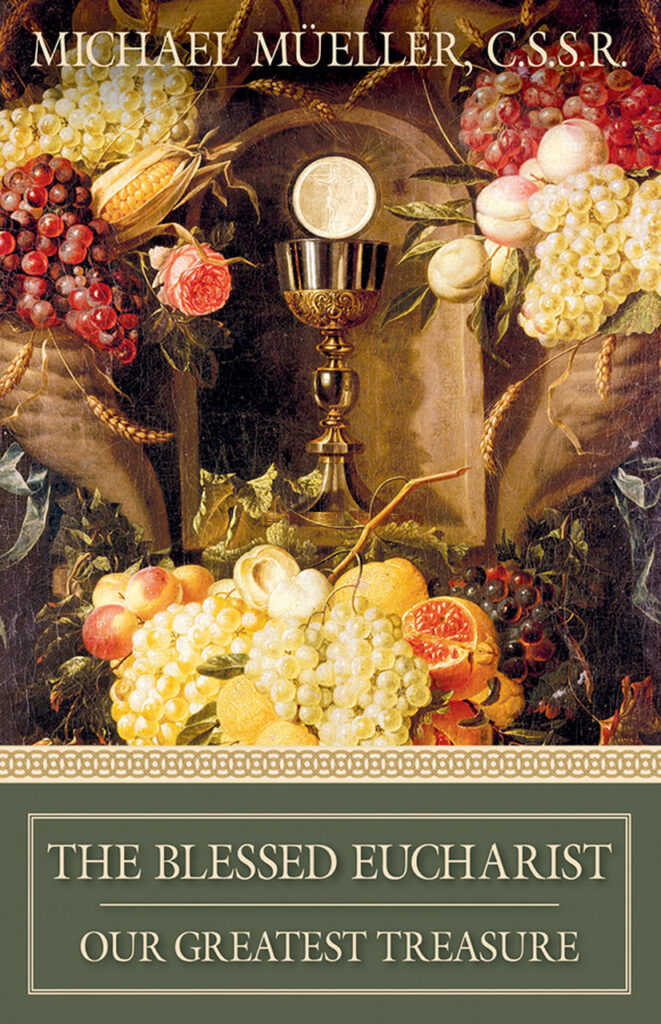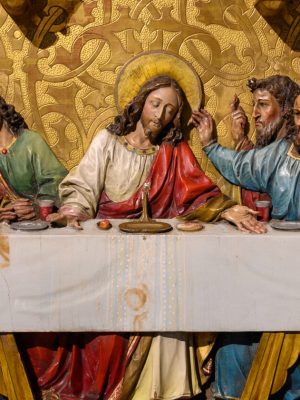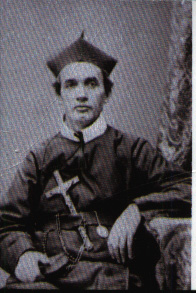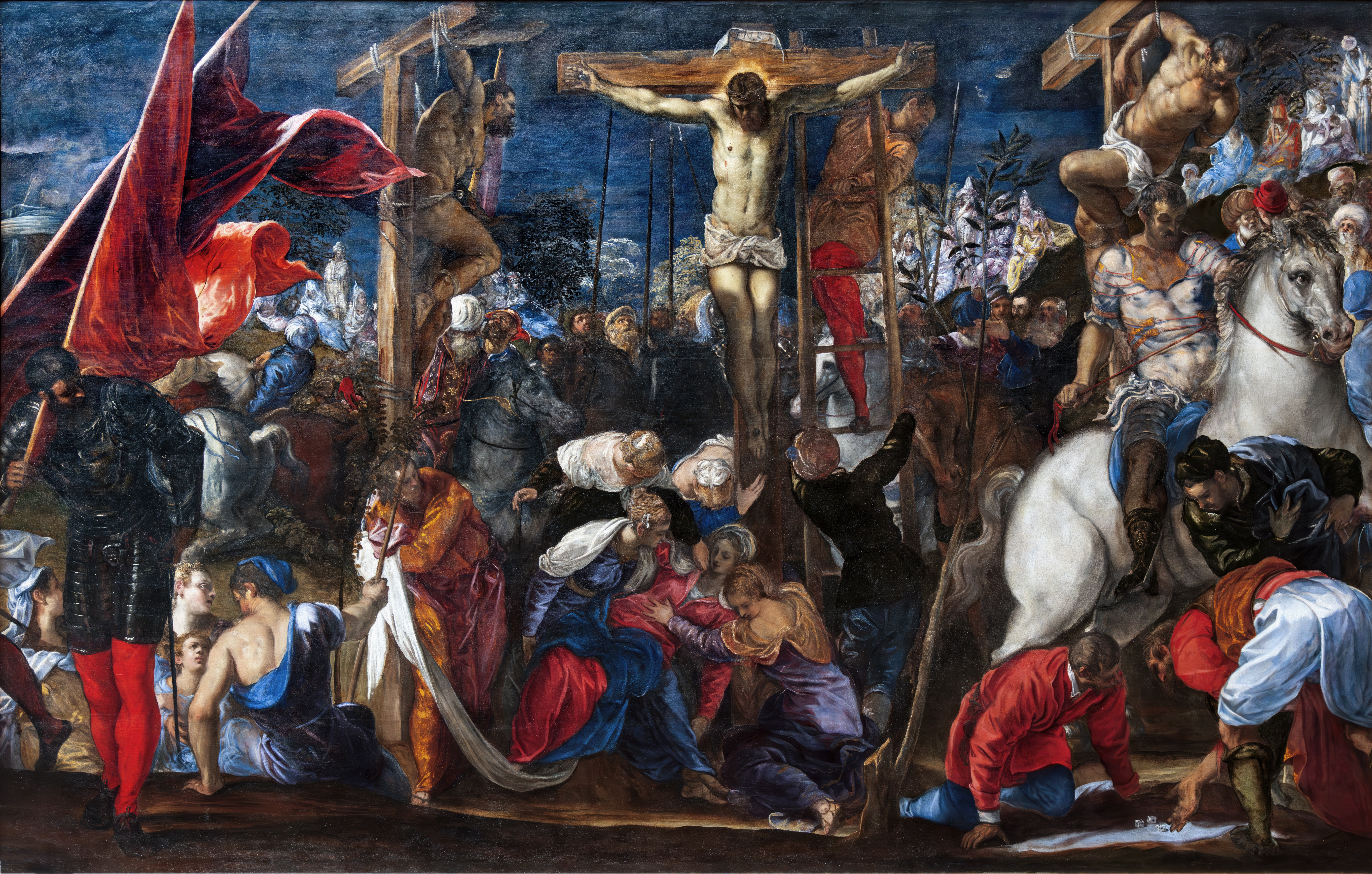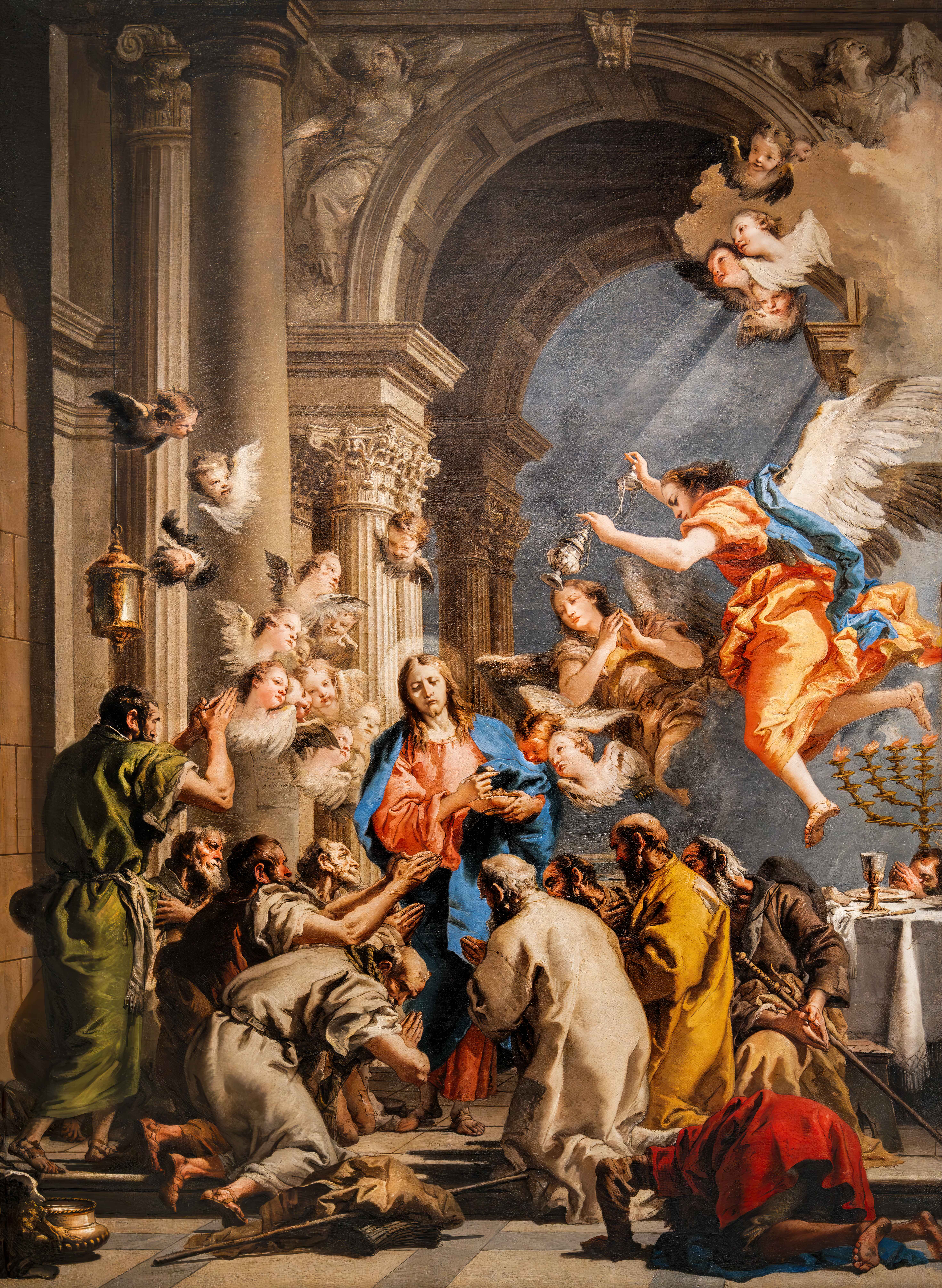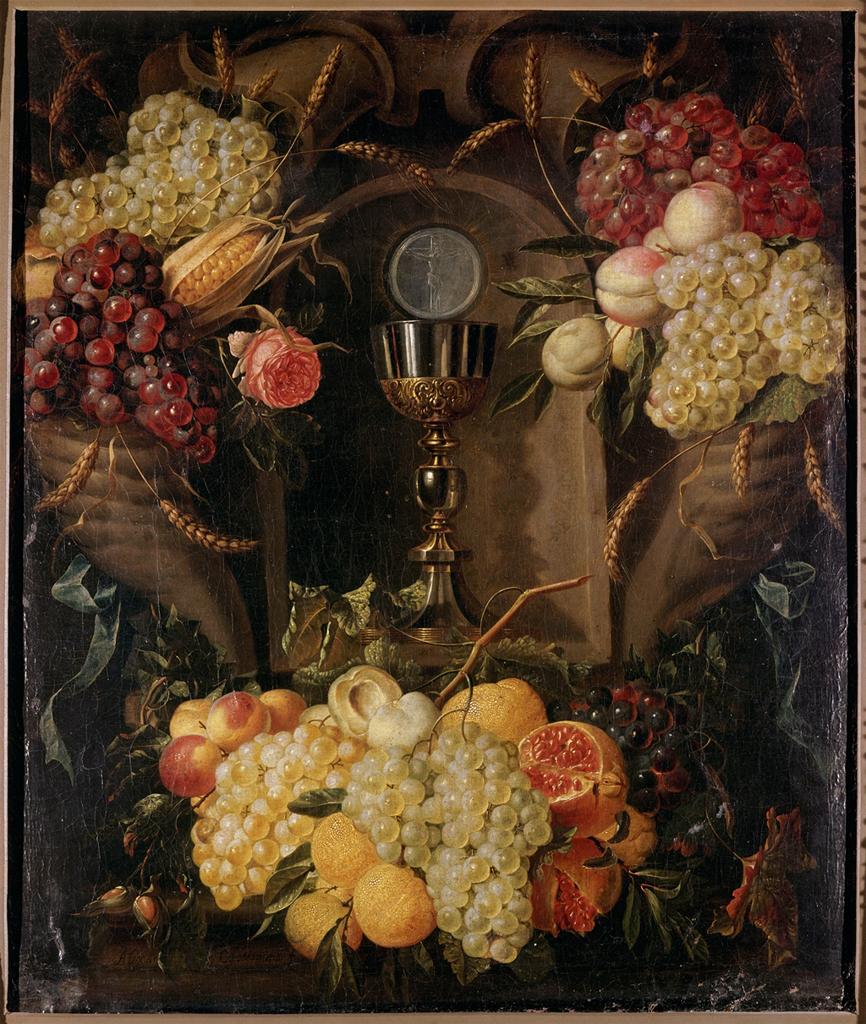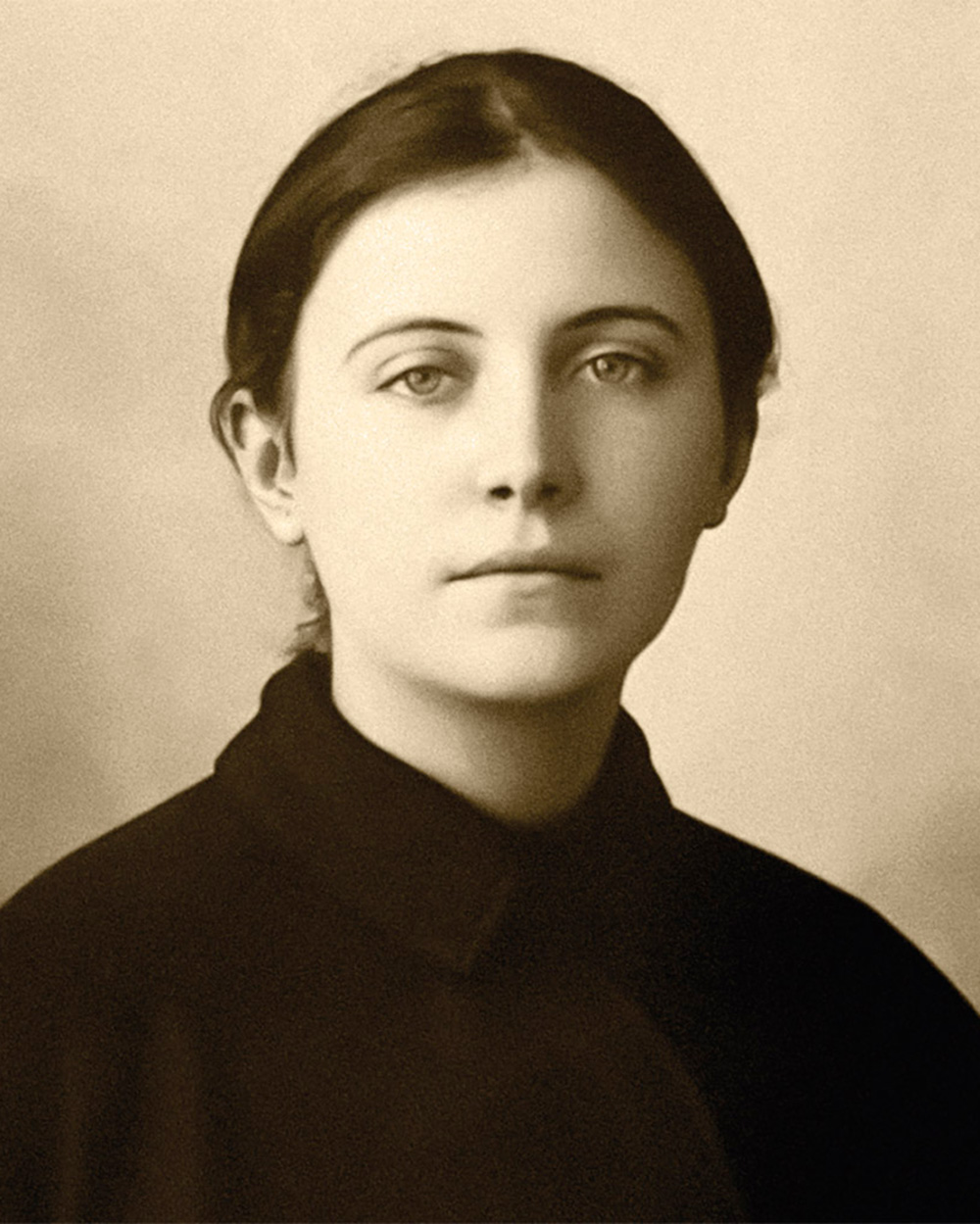At length the long-looked-for day came. At the Last Supper Jesus took bread and blessed and gave to His disciples and said: “Take ye and eat, for this is My body.” Then taking the chalice, He gave thanks and gave to them, saying, “Drink ye all of this, for this is My Blood of the New Testament which shall be shed for many, for the remission of sins” (Matt. 26:28).
Now in these words we must consider especially the Speaker. It was God Himself. It was the same God who created Heaven and earth out of nothing; who, in the beginning, said: “Let light be made,” and in an instant the sun, the moon and the stars appeared in the heavens; the same God who once destroyed the whole world by water, with the exception of eight persons; who destroyed Sodom and Gomorrha by fire from Heaven; who, by His servant Moses, wrought so man miracles in the sight of Pharaoh and conducted the Israelites out of Egypt, making a dry path for them in the midst of the Red Sea. It was the same God, Jesus Christ, who once changed water into wine; who gave sight to the blind, hearing to the deaf, speech to the dumb, and life to the dead; Jesus Christ who ascended into Heaven and who, at the end of the world, will come again with great majesty in the clouds of Heaven, to judge the living and the dead.
He it was, the great Almighty God, who took bread into His most sacred hands, blessed and gave to His disciples, saying: “Take ye and eat: For this is My Body.” And no sooner had He said: “This is My Body,” than the bread was really changed into His Body. He it was who, in the same manner, took the chalice, blessed and gave to the disciples, saying: “Drink ye all of this, for this is My Blood.” And no sooner had He said, “This is My Blood,” than the wine was really changed into His Blood.
When God speaks, what He commands is done in an instant. As He made the sun, the moon and the stars merely by saying: “Let light be made,” so also at the Last Supper, by His word alone, He instantaneously changed bread into His Body and wine into His Blood. To those who doubt this, we may apply the reproof which St. Jane Frances de Chantal once gave to a Calvinist nobleman who was disputing with her father about the Real Presence. She was at that time only five years of age, but hearing the dispute, she advanced to the heretic and said, “What, Sir! You do not believe that Jesus Christ is really present in the Holy Eucharist, and yet He has told us that He is present. You then make Him a liar. If you dared attack the honor of the king, my father would defend it at the risk of his life, and even at the cost of yours; what have you then to expect from God for calling His Son a liar?” The Calvinist was greatly surprised at the child’s zeal, and endeavored to appease his young adversary with presents; but, full of love for her holy faith, she took his gifts and threw them into the fire, saying: “Thus shall all those burn in Hell who do not believe the words of Jesus Christ.”
St. Paul warmly exhorts the Corinthians to flee all communication with idolatry and to abstain from things offered to idols, and he uses the following argument to persuade them: “The chalice of blessing which we bless, is it not the communion of the Blood of Christ? And the bread which we break, is it not the communion of the Body of the Lord?” (1 Cor. 10:16).
Here he expressly says that in the Holy Eucharist we communicate and partake of the Body and Blood of Jesus Christ. And still further on he says, in the same epistle to the Corinthians: “Whosoever shall eat this bread, or drink the chalice of the Lord unworthily, shall be guilty of the Body and Blood of the Lord.” Nay, he goes farther and says: “He that eateth and drinketh unworthily, eateth and drinketh damnation to himself, not discerning the Body of the Lord” (1 Cor. 11:29).
How could the Apostle declare that anyone who received Holy Communion unworthily would eat and drink eternal damnation, if such a one did not really receive Our Lord? Would it not be absurd to say that a man would incur eternal damnation by merely eating a piece of bread or drinking a few drops of wine? But because the Apostle, taught by Jesus Christ Himself, knew that he who receives Holy Communion receives Our Lord Himself, he declared that to receive it unworthily was to be guilty of the Body and Blood of Jesus Christ and consequently to deserve Hell-fire.
Moreover, all the Fathers of the Church teach the same doctrine as St. Paul. St. Ignatius, Bishop of Smyrna, who lived in the first century, wrote as follows to the faithful of that city: “Because the heretics refuse to acknowledge that the Holy Eucharist contains the same flesh which suffered for our sins and was raised again to life by God the Father, they die a miserable death and perish without hope.”
Tertullian says: “Our flesh is nourished with the Body and Blood of Jesus Christ so that our souls are filled with God Himself.” “Who,” asks St. John Chrysostom, “will give us of His flesh that we may be filled?” (Job 31:31). This Christ has done, allowing Himself not only to be seen, but to be touched too, and to be eaten, so that our teeth pierce His Flesh, and all are filled with His love.
Parents often give their children to others to nurse them: not so do I, says Christ – I nourish you with My Flesh and place Myself before you. I was willing to become your brother; for your sake I took Flesh and Blood; and again I deliver to you that Flesh and Blood by which I became so nearly related to you” (Homil. 46). In like manner do all the Fathers of the Church speak that have written upon this subject.
But you will ask: “How is Our Lord present in the Holy Eucharist?” I answer: “Jesus Christ is truly, really and substantially contained under the outward appearance of bread and wine, i.e., He is present whole and entire, His Body and Soul, His Flesh and His Blood, His whole humanity and His whole divinity. This is clear from what Our Lord said at the institution of this holy mystery: “This is My Body,” that is to say, this which I hold in My hand is the same body of Flesh with which you see Me clothed, the same Body that I have borne for thirty-three years, the very Body that shall be tomorrow nailed to the Cross.
Moreover, as in His the human nature was inseparably united to the divine, He Himself – His whole humanity and divinity – was contained under that outward appearance of bread. “How is this possible?” you ask. I answer: “By the Almighty power of God.” It is not as easy for Him to change bread into His Body and wine into His Blood as it was for Him to create Heaven and earth out of nothing?
It happened once in the Netherlands that two ladies, a Catholic and a Protestant, were disputing on the subject of the Real Presence. The Protestant asserted that the Real Presence was impossible. The Catholic asked her: “Have you Protestants any creed in your religion? “Oh, to be sure,” said the Protestant; and she began to recite: “I believe in God the Father Almighty, Creator of heaven and earth.” “Stop,” said the other, “that is enough. You say that you believe in an all-powerful God; why then do you not believe that He can change bread into His Body and wine into His Blood? Is that difficult for Him who is Almighty?” The Protestant had nothing to answer.
This article is taken from a chapter in The Blessed Eucharist Our Greatest Treasure by Fr. Michael Müller which is available from TAN Books.
